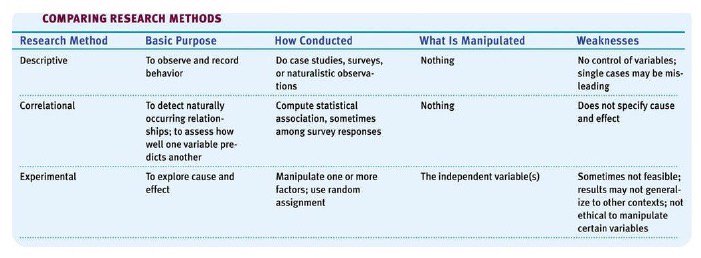3. Types of Research Methods
Descriptive Research Methods - These are done when a researcher just wants to describe what is going on in a situation. You can't make any predictions from these methods and you certainly can't make any causes and effect claims. There are three specific types of descriptive research. The researcher only describes, nothing is manipulated.
Experimental Research - this is done when the researcher wants to see if variable A causes a change in variable B. The researcher manipulates the independent variable and then measures the impact that has on the dependent variable. Because confounding variables are controlled for and statistical significance will be calculated, the researcher can find out if A causes B.
Descriptive Research Methods - These are done when a researcher just wants to describe what is going on in a situation. You can't make any predictions from these methods and you certainly can't make any causes and effect claims. There are three specific types of descriptive research. The researcher only describes, nothing is manipulated.
- Case Studies - this is an in-depth study of a person or a small group usually done for situations that are rare or cannot be replicated.
- Naturalistic Observation - this is when the researcher watches and records behavior of an organism in its natural setting.
- Surveys - these are questions given out to a sample of a population.
Experimental Research - this is done when the researcher wants to see if variable A causes a change in variable B. The researcher manipulates the independent variable and then measures the impact that has on the dependent variable. Because confounding variables are controlled for and statistical significance will be calculated, the researcher can find out if A causes B.

 RSS Feed
RSS Feed
